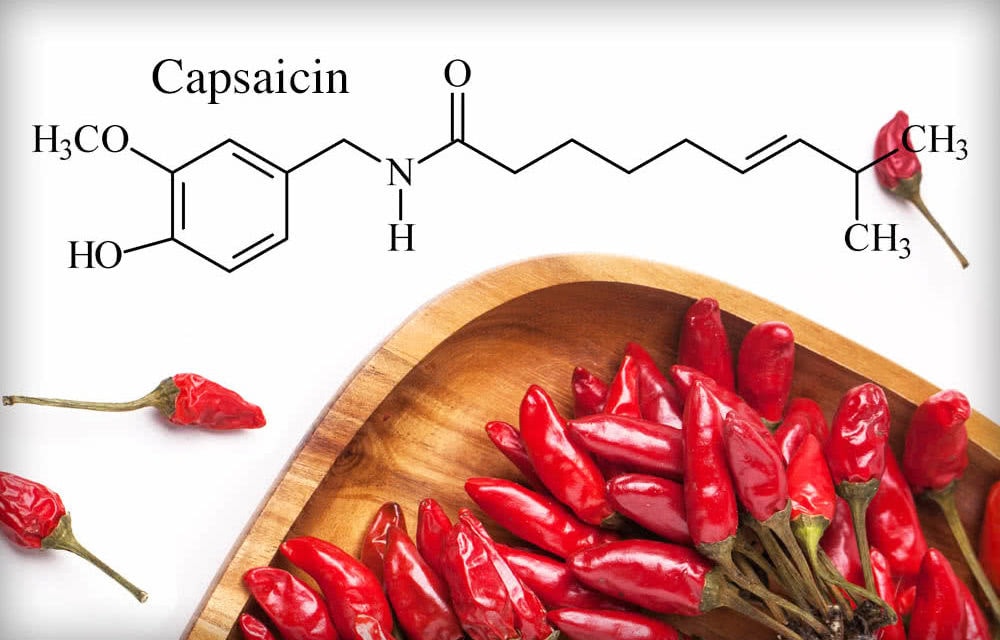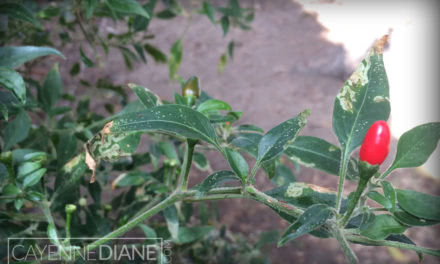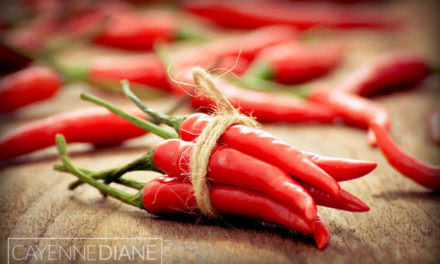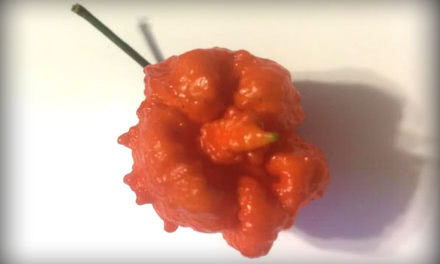Capsaicinoids are the name given to the class of compounds found in members of the capsicum family (also known as peppers). The most common capsaicinoid is capsaicin. Capsaicin, pronounced “cap-SAY-sin”, is the chemical compound that gives hot chile peppers the heat you experience when eating them. It is present in almost all peppers, and varies from nearly undetectible, to “Super Hot” ratings.
The Scoville Scale is a measurement of capsaicin concentration reported in Scoville heat units (SHU).
Capsaicin can be thought of as an evolutionary deterrent to keep hungry animals from eating the precious seeds that will plant and grow the next generation of each pepper. Therefore, the pith of the pepper is where capsaicin is most concentrated. In biological terms, the pith is the placental tissue, where the seeds of the plant grow.
Capsaicin has no flavor or odor but acts directly on the pain receptors. Check out this article to find out more about how capsaicin really works. Capsaicin produces a sensation of burning in any tissue with which it comes into contact. This is to discourage critters from eating them. Birds, however, are an exception. Birds are not affected by capsaicin. This is why many small, upright varieties of peppers are called Bird Peppers. Because birds are known to eat them.
One study showed that chile pepper seed germination is decreased in the GI tract of mammals but not by the passage through the GI tract of birds. Therefore, birds can benefit from the nutritional value of the chile peppers by not being sensitive to the capsaicin. The plant benefits by getting the seeds dispersed efficiently.
Capsaicin has many uses.
It is used medically to produce deep-heating rubs for treating sports injuries and arthritic therapies.
Some use it as an animal repellent for cats, squirrels, skunks, and raccoons. The capsaicin irritates animals when they touch, smell or taste the product, keeping them out of yards or flowerbeds.
Please note: The National Pesticide Information Center advises against the use of capsaicin, which kills honeybees and other beneficial insects, so it might not be the best thing to spray outdoors.
It’s also used for self-defense in pepper spray, also known as OC spray (from “oleoresin capsicum”), OC gas, or capsicum spray.






